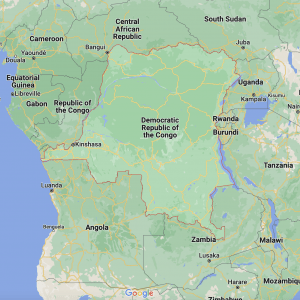Hotter sands in Malaysia’s Terengganu put future of turtles at risk
Research bodies say rising temperatures, shifting weather patterns, and coastal erosion are taking a toll on nesting female turtles and their hatchlings
KUALA LUMPUR, Malaysia (MNTV) — Already vulnerable to pollution and poaching, turtles now face an even greater threat — dangerously warming beaches, warns the Marine Conservation and Research Organization Malaysia (Pulihara).
The impacts of climate change are being seen in Terengganu region, where rising temperatures, shifting weather patterns, and coastal erosion are taking a toll on nesting female turtles and their hatchlings, reports the New Straits Times (NST).
If immediate action is not taken, these environmental changes could spell long-term population declines for sea turtles, the research body says.
The organization’s project manager, Isandra Shazlynn, says the sex of turtles depends on temperature. “Warmer sand tends to produce more females, while cooler sand results in more males.
The pivotal temperature — the threshold at which an equal number of males and females is produced — varies slightly between species but generally falls around 29°C.
“With global temperatures rising, many natural nesting sites are experiencing sustained increases in sand temperature, leading to female-biased hatchling production.
“While this may not seem like an immediate problem, a heavily skewed sex ratio can lead to long-term population decline due to a shortage of males for reproduction.”
This trend has been observed among sea turtle hatchlings on the beaches of Tanjong Jara, Lang Tengah, and Chakar Hutan, where Pulihara operates.
“In extreme cases, excessive heat can also reduce hatching success, with embryos failing to develop or dying before they can emerge,” she says.
She adds that storm surges and unpredictable weather patterns further exacerbate these challenges, as high tides and coastal erosion could wash away nests or flood them with seawater, suffocating the developing embryos.
Additionally, she says, more frequent storms also pose a threat to adult turtles, increasing stranding incidents and making it harder for females to find safe nesting grounds.
Isandra explains that coastal erosion and rising sea levels are forcing them to act quickly.
Some of the beaches they protect shrink each season, leaving little safe space for natural nesting.
“When nests are laid too close to the waterline, they are at high risk of being washed away before incubation is complete.
“In such cases, relocation to our hatcheries is often the only viable solution to prevent total nest loss.
“Saltwater flooding from extreme tides is also becoming a growing concern. Unlike natural rainfall, saltwater infiltration can disrupt embryonic development and reduce hatching success,” she says.
Climate change is also leading to food shortages for turtles as fish and other sea creatures they prey on move or die, as in the case of corals.
As a result, turtles are forced to expend more energy searching for food, ultimately impacting their health and reproductive success.
Complicating matters are human factors like development. “Many traditional nesting beaches have been eroded or lost to tourism development, sand mining, and infrastructure projects.
“Turtles that continue nesting in these areas face dangers from artificial lighting, beach traffic, and rising sea levels, all of which can reduce hatching success.
“Meanwhile, at-sea threats such as plastic pollution, bycatch in fisheries, and poaching further endanger Malaysia’s turtle populations,” Isandra says.
World Wide Fund for Nature Malaysia shares similar concerns, saying that in Malaysia, the impact of climate change is especially visible in hawksbill turtles.
“The hawksbill turtles primarily feed on sponges found in coral reefs. Coral degradation due to warming waters affects the availability of their food sources,” it says.
Additionally, it says rising sand temperatures at leatherback turtles’ nesting beaches could result in skewed sex ratios towards females and reduced hatching success.










